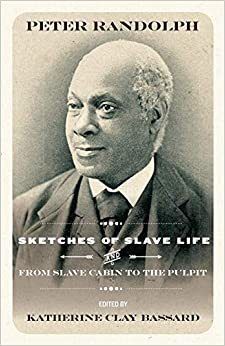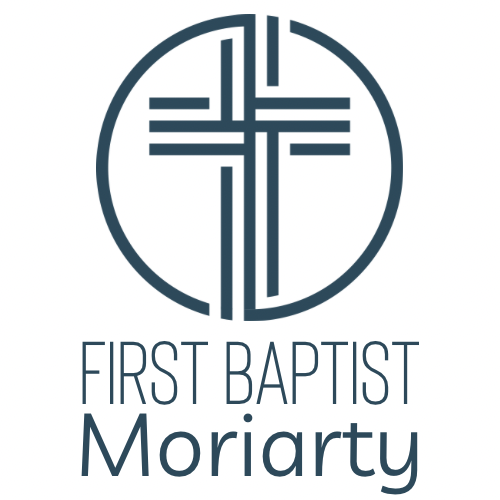A Recommended Book: Slave Cabin to the Pulpit
Peter Randolph. Sketches of Slave Life and From Slave Cabin to the Pulpit. Edited by Katherine Clay Bassard. West Virginia University Press. 2016. 309 pp. $21

If you're looking for a good book Christians will benefit from reading, look no further. Few people today possess a true sense of slavery's evil. The autobiography of Peter Randolph, a former slave turned pastor-abolitionist and community leader, provides a horrifying eyewitness account of the ‘peculiar institution’ of human slavery and white southern churches in nineteenth-century America. Katherine Bassard, professor of English at Virginia Commonwealth University, embarked upon a decade-long archival journey that corroborated Randolph’s life story and writings. Canvasing textual and digital records of libraries, government institutions, and historical societies from Virginia to Massachusetts, Randolph’s writings reflect both his theological and ecclesiastical beliefs. They also testify to the general faith and practice held by the white churches of Prince George County, Virginia, and, more broadly, the American south.
“O, men with hearts, how can you be unconcerned and careless regarding this curse of your country?” Randolph wrote. He knew that God had created the bouquet of humanity with different skin colors in His wisdom and with an “all-wise purpose.” Yet, given the crimes committed against Randolph and many others, Randolph fervently sought to intercede with God on behalf of evil men, saying, "May God have mercy upon us. Oh, forgive us this great evil—the evil of selling, whipping and killing men, women, and children! Oh, God of justice! […] We have sinned!” he prayed. The blood of the slave cried out to God for vengeance “from Texas to Maine,” from “wherever the voice of its victims [lay buried].”
Randolph believed in Jesus Christ as the Son of God, the Bible as God’s Word, baptism by immersion, and the need for regenerate church membership. He knew the “true gospel” and used it to rebuke a “slaveholder’s gospel.” Of the evils perpetrated by slavery’s participants, Randolph spoke of how his feelings had become so excited that his language failed. The unspeakable things he experienced, however, did not weaken Randolph’s condemnation of American slavery, its participants, and its enablers. Perhaps the starkest warning, and a reminder for all times, resides in Randolph’s powerful petition before God, “Awake! Awake! And cry aloud against this great evil; lift up your voice like a trumpet, and show the people their sins! […] Pray that God may have mercy upon us.”
In my opinion, this is both an informative and humbling book. My challenge to you: read it for yourself. When you do, please take the time to reach out and let me know. We can talk about it together over a cup of coffee and thank God for those “noble band of men and women” who did indeed act for humanity. “By pen and tongue acting under the highest impulse,” said Randolph, “[these people] did not hesitate to perform their duty [on behalf of oppressed humanity].”
Available on Amazon here:
Slave Cabin to the Pulpit
Randolph believed in Jesus Christ as the Son of God, the Bible as God’s Word, baptism by immersion, and the need for regenerate church membership. He knew the “true gospel” and used it to rebuke a “slaveholder’s gospel.” Of the evils perpetrated by slavery’s participants, Randolph spoke of how his feelings had become so excited that his language failed. The unspeakable things he experienced, however, did not weaken Randolph’s condemnation of American slavery, its participants, and its enablers. Perhaps the starkest warning, and a reminder for all times, resides in Randolph’s powerful petition before God, “Awake! Awake! And cry aloud against this great evil; lift up your voice like a trumpet, and show the people their sins! […] Pray that God may have mercy upon us.”
In my opinion, this is both an informative and humbling book. My challenge to you: read it for yourself. When you do, please take the time to reach out and let me know. We can talk about it together over a cup of coffee and thank God for those “noble band of men and women” who did indeed act for humanity. “By pen and tongue acting under the highest impulse,” said Randolph, “[these people] did not hesitate to perform their duty [on behalf of oppressed humanity].”
Available on Amazon here:
Slave Cabin to the Pulpit
Posted in Coffee Hour w/ Pastor John
Posted in Slavery, Freedom, Equality, Race, Christianity, Love, Peter Randolph, Katherine Bassard, Racism, Discrimination
Posted in Slavery, Freedom, Equality, Race, Christianity, Love, Peter Randolph, Katherine Bassard, Racism, Discrimination
Recent
Is Jesus God?
January 20th, 2026
Did God Approve of Polygamy
January 12th, 2026
Entering the New Year Anchored, Not Anxious
January 2nd, 2026
Why Christmas Matters: Immanuel, Prophecy, and God’s Perfect Timing
December 13th, 2025
The Truth About the “Spirit of Jezebel”: Why the Idea Is Not Biblical — and Why It Is Spiritually Dangerous
December 2nd, 2025
Archive
2025
April
September
October
2024
February
April
July
December
2023
